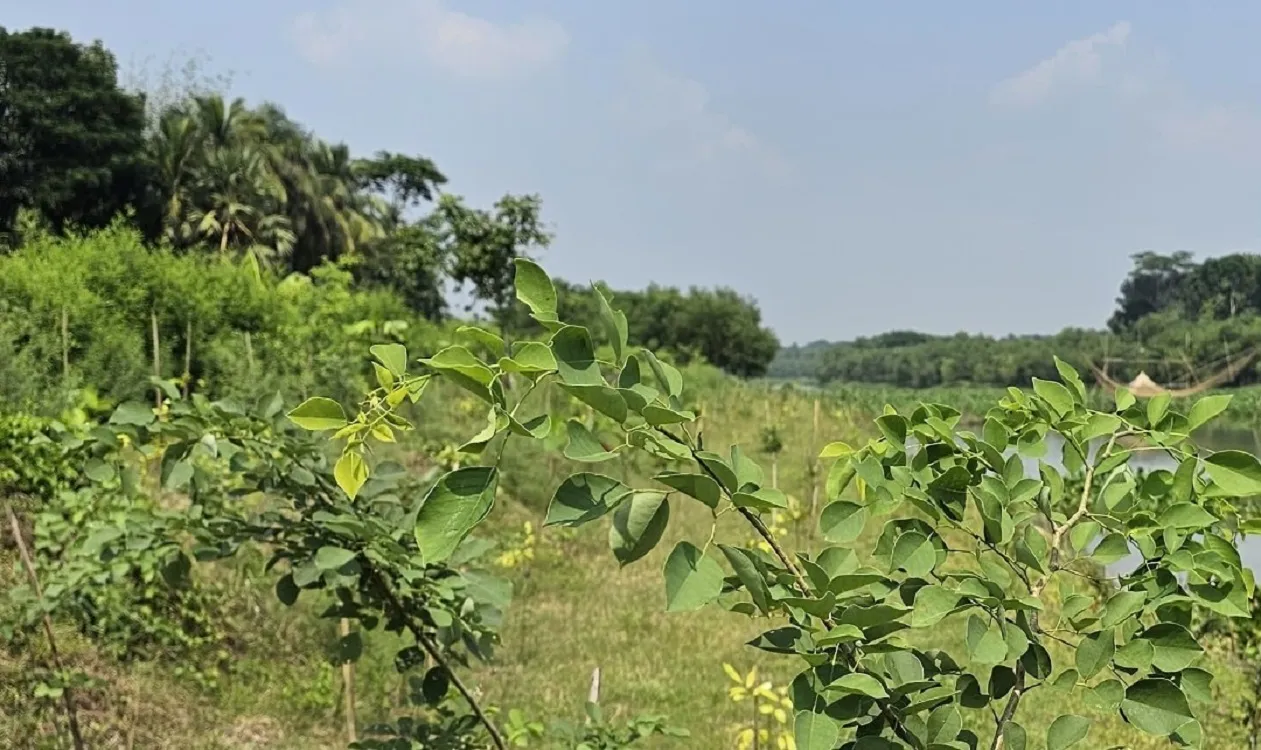


In the fiscal year 2024-2025, the Social Forestry Department in Jessore planted 13,680 saplings, starting from the residence of Moslem Sheikh in Par-Mallikpur and extending to the home of Tabibur Rahman in Panchuria, crossing Dighlia Bridge in Lohagara Upazila of Narail district, under the garden management and project expenditure category.
An agreement has been established involving both male and female beneficiaries within this garden. Approximately 30 different species of saplings have been introduced in the aforementioned garden. Notable examples include mahogany, gamar, acacia, ipil, deodaru, khaiya acacia, jackfruit, chalta, olive, chikrashi, guava, ata, amalki, haritaki, behera, kath badam, batabi lebu, kadabel, jarul, tamarind, neem, jam, shil-karai, among others.
After a decade, once the garden's cycle concludes, 55 percent of the profits from the sale of the garden's trees will be equally distributed among the beneficiary members. Furthermore, landowners and union parishads will receive dividends based on the principles of social forestry.
The garden's beneficiaries have voluntarily enhanced the conservation efforts for the planted trees.
The Divisional Forest Officer, Assistant Conservator of Forests, Officer-in-Charge, Upazila Forester, and other staff from the Social Forest Division in Jessore have been periodically visiting the garden to reinforce the conservation measures for the trees planted there.
During discussions, garden beneficiaries Md. Nizam Uddin from Kola village and Sajinur Begum from Par-Mallikpur village mentioned that the tree conservation activities are ongoing in accordance with the directives of the Forest Department.
This dam garden is a remarkable sight along the banks of the Nabaganga River in the southern region of Lohagara Upazila. Thanks to the greening efforts by the Forest Department, the natural environment in this area has become more beautiful and inviting. Local farmers and passersby find respite from fatigue in this lush, shaded garden. Additionally, the garden serves as a vital source of oxygen supply. The garden resonates with the sounds of different bird species. It plays a crucial role in preventing soil erosion, conserving dams, and mitigating natural disasters. In addition to fostering socio-economic growth, the garden enhances the natural environment.
In this context, Kazi Ishtiaq Rahman, the Forest Officer (Forest Ranger) of Narail District, stated that the Forest Department's initiatives will persist in Narail.
Notably, this year, rather than using seedlings from foreign invasive species, the garden has been established with seedlings of native fruit, forest, and medicinal trees as part of the social forestry program.
Comment